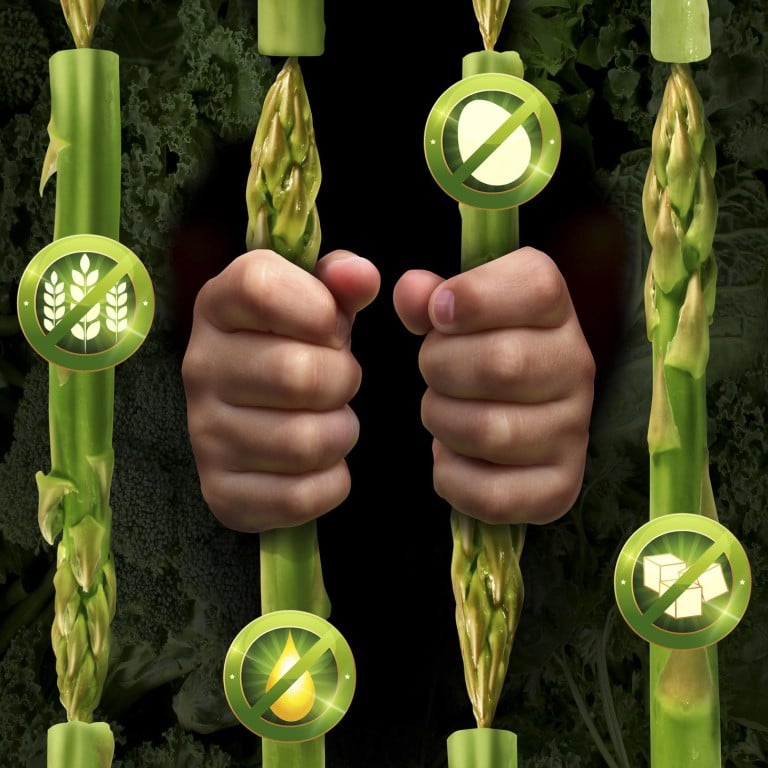
Hong Kong experts answer common questions about healthy eating
Fat-free, gluten-free, free range - it can all get a bit overwhelming. Angela Cheng Matsuzawa and Ann Cha help clear the confusion on healthy eating
In recent years, many people have become highly conscious of their health and diet. We have an idea of what's good for us and what's not, and we've progressed way beyond "an apple a day keeps the doctor away".
There are now thousands of nutritional guides and diet books available. Some say we should eat like a caveman; others swear by supplements. It can be confusing. Here are some of the most common questions we're asked.

Some believe that a gluten-free diet will help ward off disease, but, in reality, unless you have celiac disease or are gluten sensitive, gluten-free food is not necessarily healthier. For example, soda is gluten-free but certainly not healthy.
Processed gluten-free foods can be high in calories, fat, artificial colourings and chemicals. So instead of focusing on "gluten-free", focus on incorporating whole foods, hearty grains, and fruits and vegetables into your diet.
If you believe that not eating gluten may make you feel better, try skipping obvious gluten for a week and see how you feel. In either case, choose something that's best in quality and unprocessed.
The terms "cage-free" and "free-range" have become common labels printed on egg cartons, but what do they actually mean?

"Cage-free" means the chickens are uncaged, but generally don't have access to the outdoors. "Free-range" chickens have some access to the outdoors, but type and duration is uncertain.
But neither of these terms is especially useful because they don't guarantee what's actually important for nutrition in eggs: the diet and life of the chicken.
Ideally, what you want are organic pasture-raised chickens. These chickens are truly free-range and fed with green plants and insects and no pesticides, antibiotics or hormones.
The eggs they produce naturally have a higher vitamin content and omega-3 fatty acids and lower cholesterol and fat.
These eggs are available here in most big supermarkets. Most are imported, but there are also a few local chicken farms that have great eggs.
The short answer is no. "Fat-free" foods (containing less than 0.5 grams of fat per serving) and "low-fat" foods (containing less than three grams of fat per serving) may sound like a good idea, but to maintain texture and taste, they are often higher in refined sugars, carbs, and trans-fats which can increase the risk of diabetes and heart disease.
Beyond that, not all fats are created equal. Fats in nuts, seeds and some types of fish provide essential fatty acids that maintain healthy blood vessels, support your nervous system, and regulate hormone levels.

When you consume natural foods with different colours, you ensure that you are getting a variety of minerals and vitamins. Reds tend to have antioxidants such as lycopene and vitamin A and C; oranges and yellows - vitamin C, A, B6, potassium, folate, and antioxidants such as carotene and lutein; greens - vitamin K and B, folate, potassium and antioxidants such as chlorophyll; and purples - vitamin B and antioxidants such as resveratrol and flavonoids.
We seem to be able to outsource everything, but our advice is, for cooking, don't. When you learn how to cook, you will learn how to buy ingredients. When you buy your own ingredients, you have a better understanding of what's in the food you're eating. You will be more knowledgeable, so even when you are not cooking, you can still make better choices. You'll understand why a clean tempura shrimp dish, while deep fried, may not be worse than a salad doused with a creamy dressing.
Make sure your plate is made up of 75 per cent vegetables and 25 per cent protein. This idea works even for never-ending Chinese banquets - keep that ratio for every helping.
Anything in excess is bad for your body, even healthy foods. Plan and portion your food in advance when possible. Let yourself enjoy all kinds of food to maintain a sustainable healthy diet. An acceptable ratio is to eat healthy 80 per cent of the time and allow yourself to indulge 20 per cent of the time.
